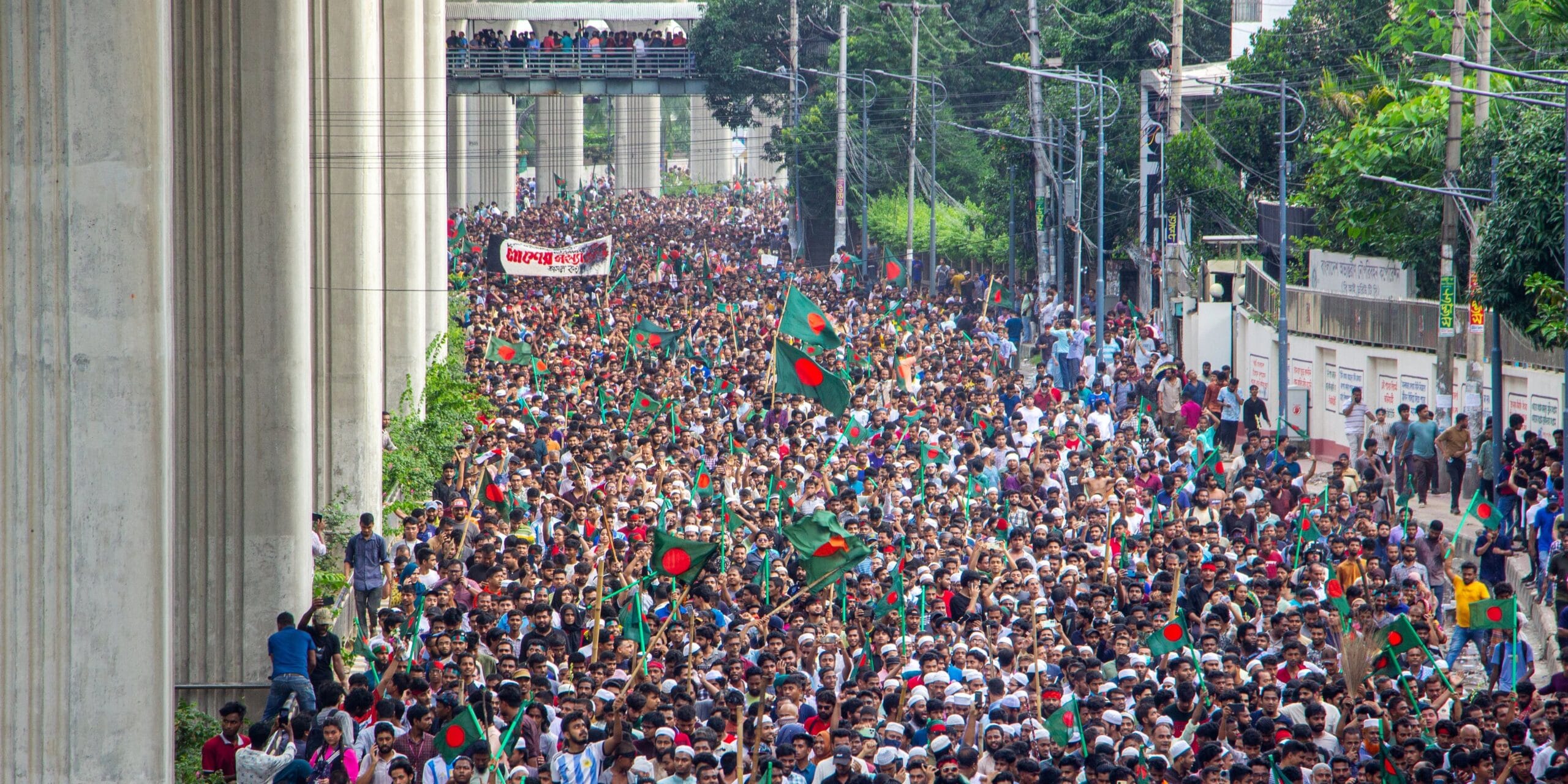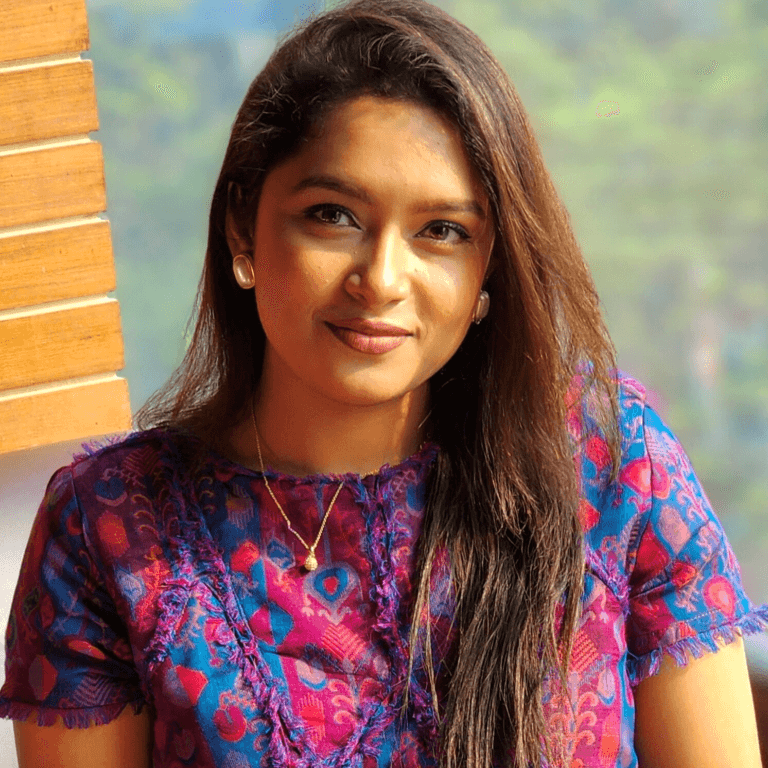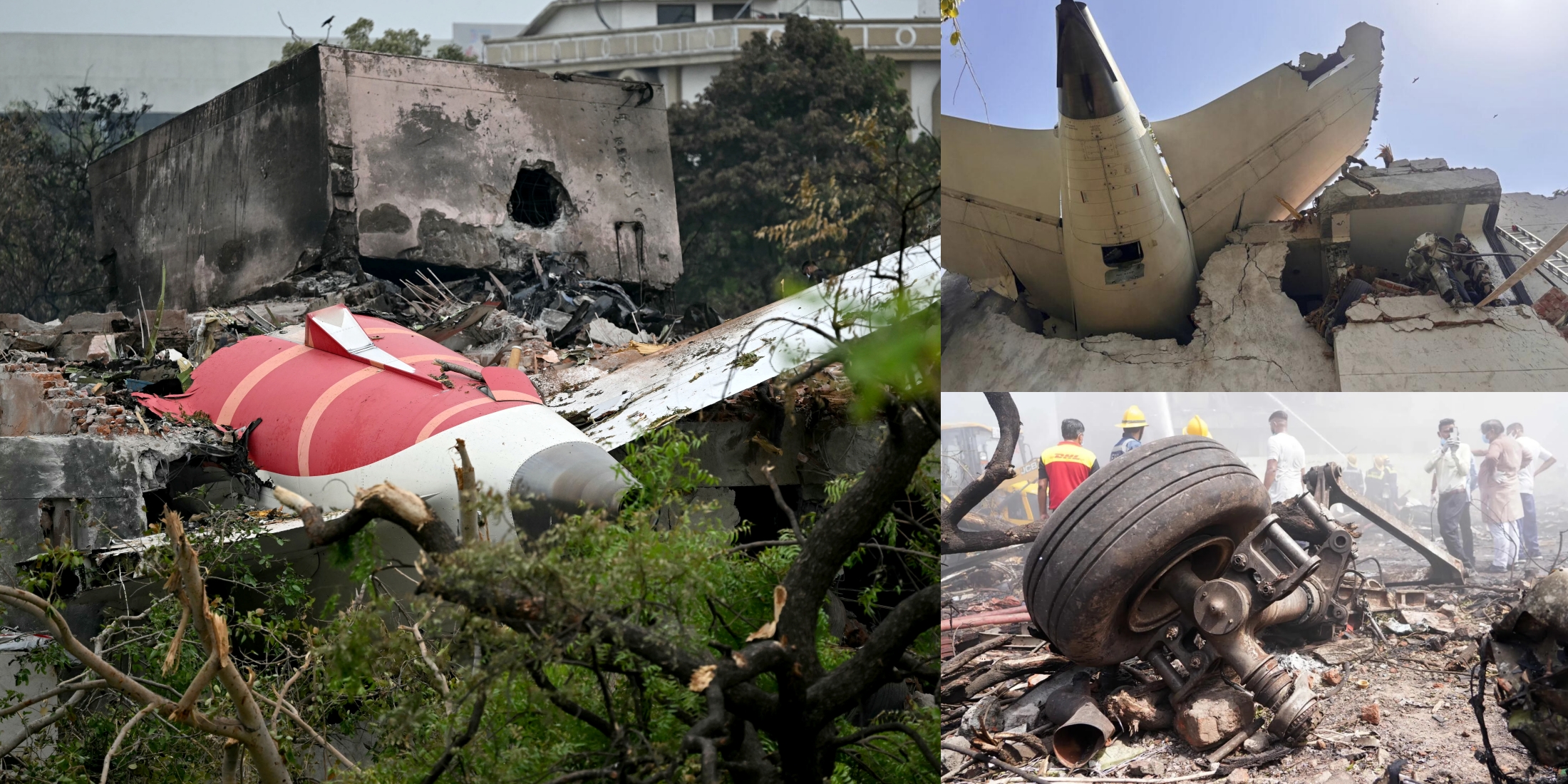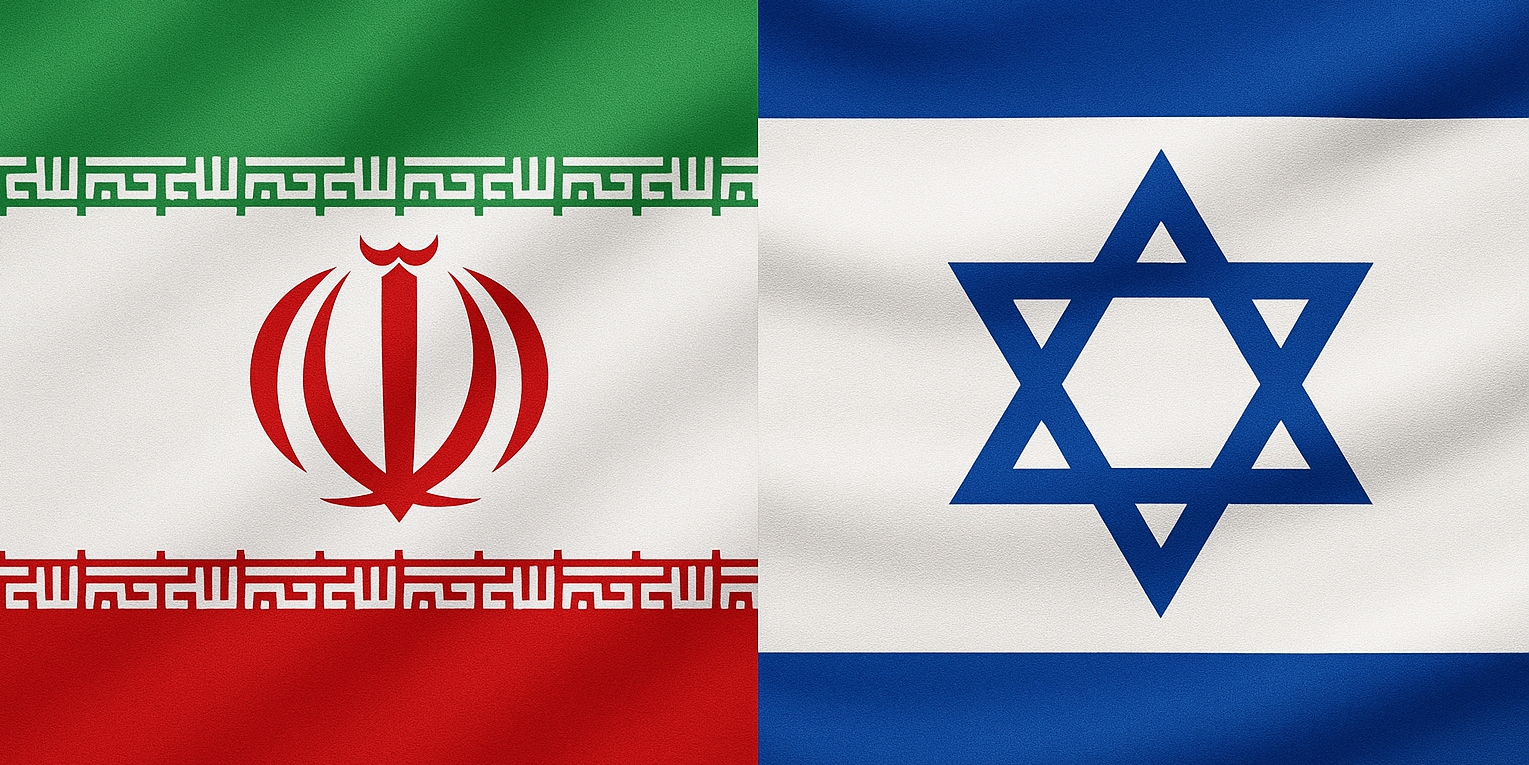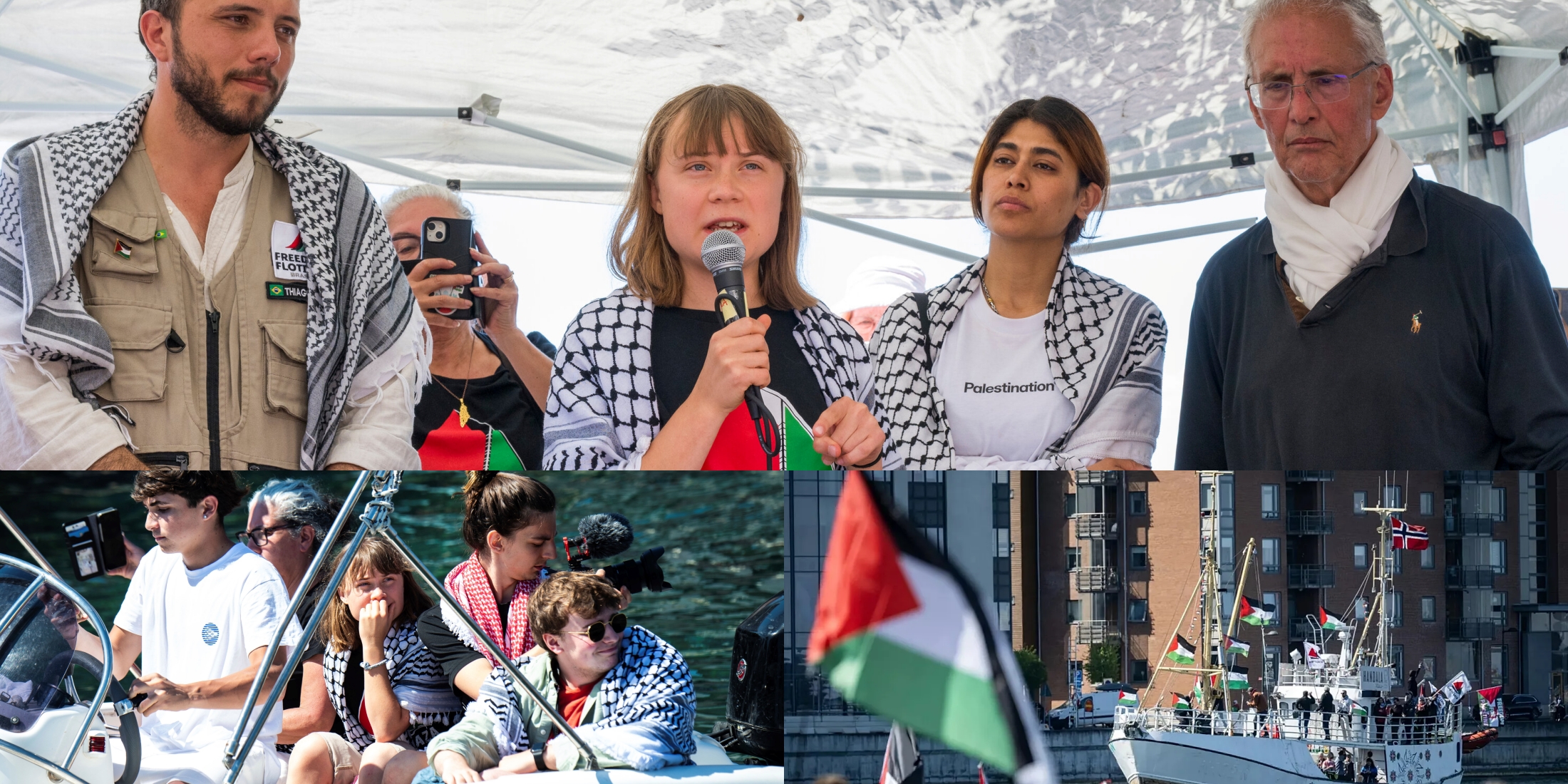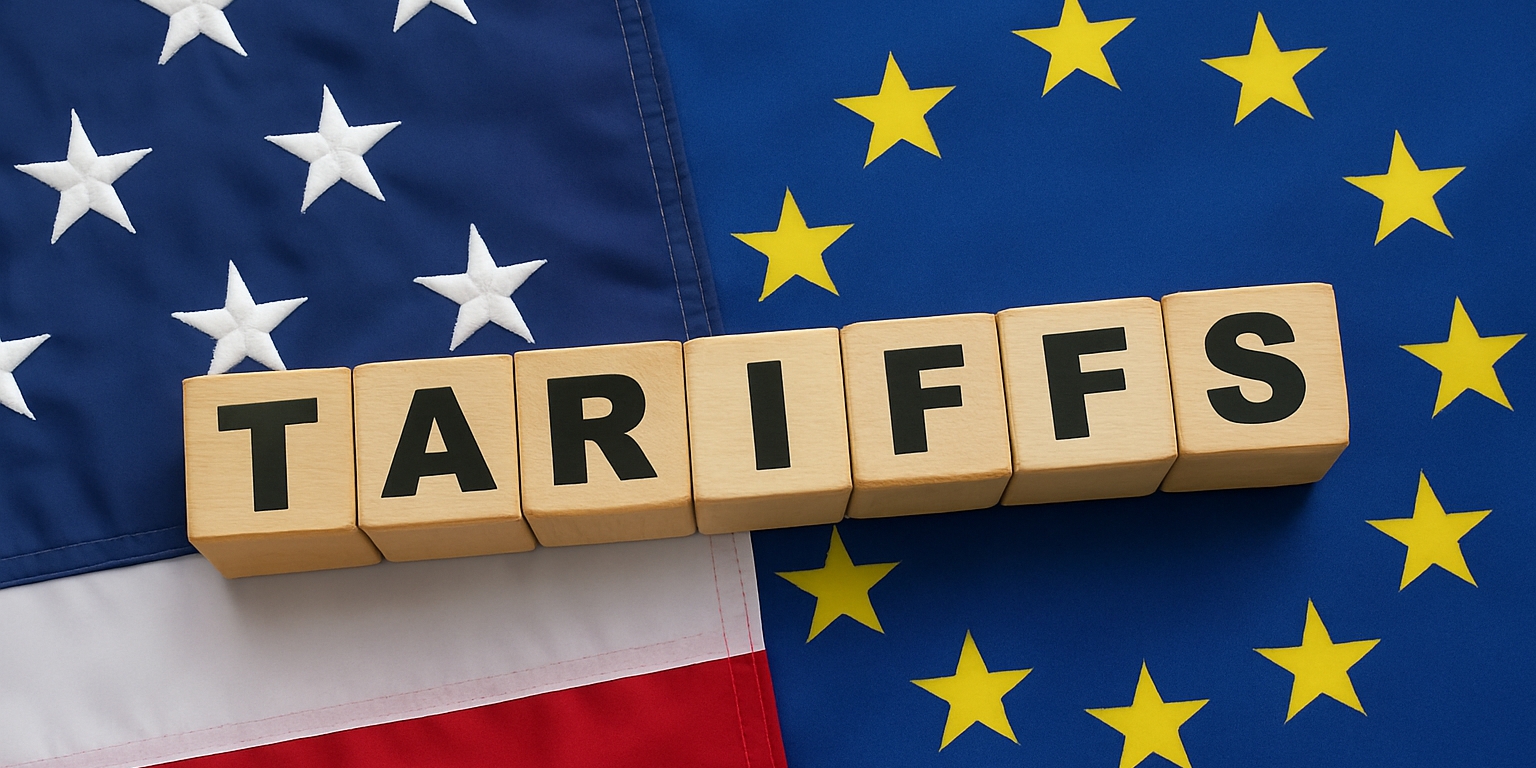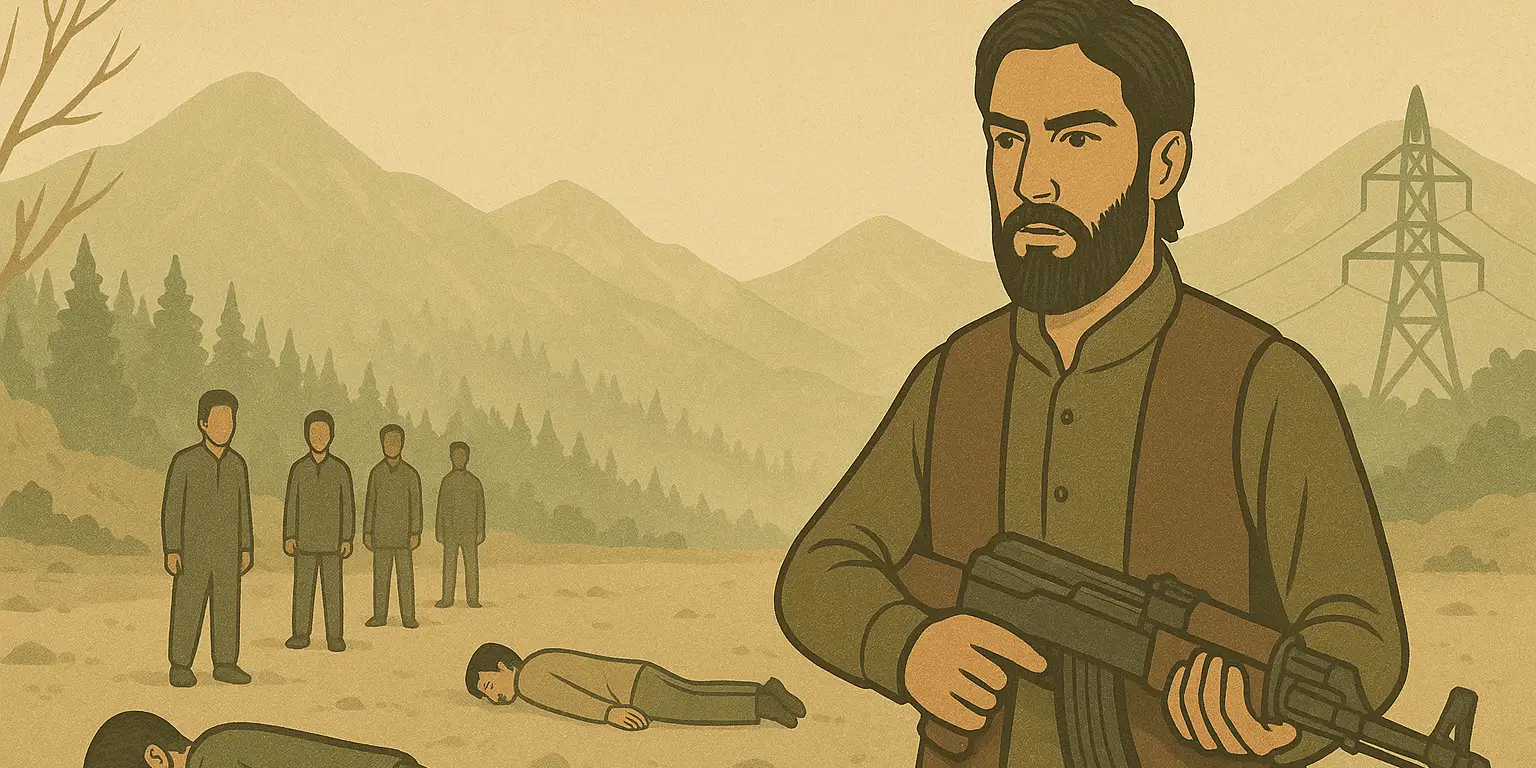On the second day (Monday, 8th July 2024) of the “Bangla Blockade” protests, university students continued their demonstrations. After 7th July’s blockade event, they obstructed the major roads and railways across Dhaka and other districts demanding the end to “Irrational and discriminatory” quotas in government jobs. The demonstrations against the unfair quota system are rooted from their four-point demand, including abolishing the quota system and reinstating the 2018 circular. On Monday, blocking important intersections caused a lot of traffic problems, unlike the previous day.
Highlights of the day:
- Protesters have blocked 11 key streets/intersections.
- Students from nine universities took part in demonstrations.
- Three blockades on Railway tracks.
- Six highways were blocked as part of the demonstrations.
As previously declared, students from the University of Dhaka (DU) blocked the Shahbagh intersection while students of seven colleges blocked the Science Lab intersection early in the day. Students from various halls and departments of DU marched with banners in front of the Central Library. During this time, a student of Dhaka College said, “It is unreasonable to provide opportunities in jobs through quotas after so many years of independence.”
One procession after another arrived. Hundreds of demonstrators gathered in these areas, waving banners and chanting anti-discriminatory slogans like, “We Want Justice”, “Bangla Blockade” etc. At the same time, protesters started to assemble at various points throughout the capital. Traffic on Bangla Motor, Elephant Road, Mirpur Road, Dhanmondi, and around Hotel Intercontinental was halted for hours.
Protesters expressed that a limited number of quotas could be given to certain underprivileged populations. Their primary argument was that under the current system, meritorious candidates were being deprived. “We want the merits to be valued,” a student claimed.
At around 4:30 PM, students expanded their march from Shahbagh to Bangla Motor, Farmgate, and some of the core traffic intersections in the city. Police put barriers at strategic spots to control the situation, but protesters, unafraid, moved forward, blocking traffic near Banglamotor and Karwan Bazar. Comments from several pedestrians suggest that the mass people support the students’ demands even though they suffer because of the blockade. The Business Standard quotes a rickshaw puller who said, “My income has halved today due to the students’ movement. But the student brothers are not fighting only for themselves. If people get any benefit out of this movement, then the suffering doesn’t seem like much trouble.”
In the outskirts of Dhaka, students of Jahangirnagar University peacefully continued their blockade of the Dhaka-Aricha highway for two hours from 11:00 AM to 1:00 PM, causing traffic movement to come to a standstill. Despite all the hardship, mass people think that the students’ movement is logical. JU students were to continue blocking the Dhaka-Aricha highway the next day (9th July) starting at 3 PM according to one of the movement’s joint conveners from the JU wing.
Meanwhile, in Cumilla, students barricaded the Kotbari Bishwa Road area of the Dhaka-Chattogram highway, obstructing one of the nation’s busiest transportation routes. This demonstration included students from Cumilla University, Cumilla Victoria Government College, National University affiliated colleges, and private universities in the district.
Addressing the press, The Awami League GS Obaidul Quader strongly advised the protesters to wait for the final verdict from the court. He also called on them to refrain from movements causing public suffering during a press conference at Sheikh Hasina’s Dhanmondi office on 8th July. He believes in the court’s ability to deliver a verdict that takes the situation into consideration. The AL leader also praised Sheikh Hasina and her smart Bangladesh initiative in the press briefing.
Despite Quader’s stand, students expressed dissatisfaction over the government’s response. Coordinator Nahid Islam said that the demonstrations and blockades would not stop and there were plans for an all-out blockade. The conveners promised a mass campaign and student coordination in and outside of Dhaka the next day (Tuesday).”
On 8th July, students concluded the second day of the “Bangla Blockade” by announcing a march to Farmgate and Parliament Avenue on the following day. In the end, Nahid Islam spoke about a one-point demand instead of a four-point. The Jatiya Sangsad (National Parliament) has to approve a law eliminating all discriminatory and irrational quotas in government posts, except for a minimum quota allocated for backward communities. As the blockade entered its third day, the government faced growing pressure to address student demands amidst public disruptions.

